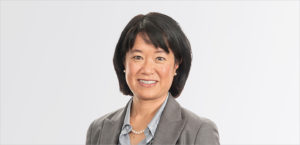Fertility Options For Lesbians
Education about family planning options is a must for women who are in a same sex relationship. The most important thing that all women should be aware of is the effect of aging on one’s fertility. Women are born with between 1 to 2 million eggs. Over their lifetime, these eggs become depleted. At puberty girls have between 300,000 to 500,000 eggs left and the number continues to decline over time. Once the eggs have been fully depleted women enter menopause which is when their menses cease. Women can have their ovarian reserve assessed with blood work to look at hormone levels, which roughly assess egg reserve. These blood tests include Follicle Stimulating Hormone (FSH), Luteinizing Hormone (LH), Estradiol and Anti Mullerian Hormone (AMH) levels. An ultrasound at the beginning of the menstrual cycle can also be used to assess egg reserve by visually inspecting how many egg follicles are present. These tests can provide information as to the status of a patient’s current ovarian reserve and help guide decision making. For instance, if a woman is older and is found to have a lower egg reserve, she may be inclined to embark on fertility treatment sooner rather than later.
Another effect of age on fertility is the risk of aneuploidy as women age. A normal fetus has 23 pairs of chromosomes. An aneuploidy pregnancy is defined as one that has more or less than 23 pairs of chromosomes. Chromosomes are important since they provide information to allow a normal pregnancy to grow. If there are too many or too few chromosomes, then an abnormal pregnancy can result. As a woman’s eggs age, the chromosomes within the egg become more “fragile” which can create this gain or loss of genetic information in the fetus. Most aneuploid embryos will either result in no pregnancy or a miscarriage however some aneuploid pregnancies can go to term. One of the most common examples of this is Down’s Syndrome where the fetus has an extra chromosome 21. In this instance, the affected pregnancy can be affected with intellectual and developmental delays, cardiac issues, and a multitude of other health issues. A significant rise in aneuploidy rates is seen in the mid-30’s and increases at a steep rate with increasing age.
For women who are in a same sex relationship and are thinking of starting a family, they should seek out the services of a reproductive endocrinologist to review their options. Initially, some diagnostic testing will be done to assess ovarian reserve as well as the overall health of the patient as well as the anatomy and health of the pelvic organs. Once this testing is completed treatment options can be reviewed.
Treatment with donor sperm is offered. Donor sperm is acquired from donors who have undergone comprehensive medical screening by a donor sperm bank. This screening usually includes screening for sexually transmitted diseases (i.e., Hepatitis B and C, HIV, syphilis…) as well as genetic screening and a review of their medical history as well as their families. Once they have passed the screening phase the donor donates a sperm specimen and a semen analysis is done to confirm that they have an adequate amount of sperm. The sperm is then frozen. After 6 months have passed the donor is tested again for sexually transmitted disease to confirm the sperm is disease free. If the repeat testing is negative, then the sperm is made available for purchase from the donor sperm bank. Most donor sperm banks have websites so recipients can view the catalog of donors available. Criteria such as age, ethnicity, education and proven paternity can be used to pick a donor.
There are a multitude of treatment options for female same sex patients who are interested in using donor sperm. One option is to time the patient’s cycle for natural ovulation. This is usually done with blood work and ultrasound. Once ovulation is confirmed a therapeutic donor insemination (TDI) can be scheduled where the sperm is thawed out and then placed through the cervix and into the endometrial cavity with a soft catheter. The procedure is quick and is usually over in a few minutes.
Another option if a natural cycle does not work is to use ovulation induction (OI) medications to stimulate multiple eggs to grow in one cycle. By having more than one egg available in a cycle the chances of getting pregnant increase. This option is usually pursued after a patient has failed to conceive with natural cycle inseminations. OI medications are started at the beginning of a woman’s menstrual cycle. Bloodwork and ultrasound are performed to see if there is a response to the OI medication. A medication is then given to help with ovulation so the insemination can be timed appropriately. After the insemination is performed, a pregnancy test is performed 14 days after the insemination. If the patient is not pregnant, another OI cycle can be initiated with her subsequent menstrual cycle. Because multiple eggs are being invoked with OI medications, patients should be aware of the risk of a multiple pregnancy which can be anywhere between 5 to 10 percent.
Lastly, if TDI has failed after many attempts, in vitro fertilization (IVF) is another option. IVF involved taking ovulation inducing medications. While on the medication blood work and ultrasound are performed to track the response. Once the follicles within the ovary look adequate based on ultrasound and blood work then an oocyte retrieval is scheduled. The oocyte retrieval is performed under light sedation in an operating room and is a relatively quick procedure. After the retrieval the patient is allowed to go home and if she is feeling well can go to work the next day.
After the eggs are retrieved, the donor sperm is thawed and used to fertilize the eggs to create embryos. A fresh embryo transfer can be done 3 to 6 days after the oocyte retrieval, or the embryos can be frozen for future use.
In same sex female couples, co-IVF is also an option where one partner creates the embryos and the other partner can carry the embryo and the pregnancy. A complete evaluation of both partners needs to be performed to see if this scenario is possible.

In conclusion, women who are in a same sex relationship have many family planning options available to them. As with all women, the most critical variable to be aware of is the effect of age on fertility. Not only does egg count diminish with time but also egg quality which can make it more difficult for women to conceive as they get older. A consultation with a reproductive endocrinologist is recommended to review the best option for you and your partner.
We are here to inform and empower. If you have any further questions or would like to book a consult to discuss your fertility journey options, please reach out to us by filling out our contact form, by calling us at 718.697.0255 or by reaching us through our social handles.
Melissa C. Yih, MD, is Board Certified in both Obstetrics and Gynecology and Reproductive Endocrinology and Infertility and has been practicing in the NJ area since 2002. Dr. Yih received her undergraduate degree from Wellesley College and her medical degree from The Robert Larner, M.D. College of Medicine at The University of Vermont. She completed her Obstetrics and Gynecology residency and her clinical fellowship in Reproductive Endocrinology and Infertility at New York-Presbyterian Weill Medical College of Cornell University. Her areas of interest include counseling patients regarding fertility preservation options.



 Blog
Blog
 0
0 





